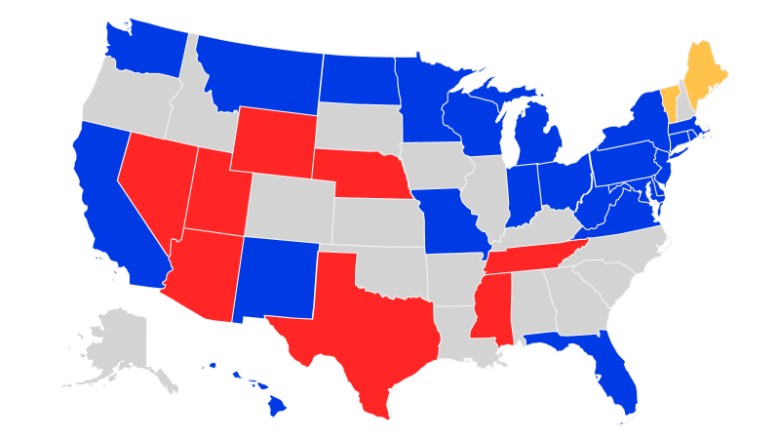Everything you want to know about the 2018 midterm House elections in 8 charts
You’re well aware the 2018 midterm elections took place, but you probably weren’t nuts enough to stay up to see the almost final results. Luckily for you, we were and… Read More
Anticipating Trouble: Congressional Primaries and Incumbent Behavior
As we approach the midterm elections, both Democrats and Republicans are faced with significant intraparty divisions. This polarization manifests itself most clearly in the primary process and elections. However, congressional… Read More
Nikki Haley on polarization
Increased polarization and political volatility are creating lasting effects on America’s standards of political discourse. Addressing this shifting norm, former US Ambassador to the UN Nikki Haley set our nation’s… Read More
Nationalized elections and the 2018 U.S. Senate midterms
In the months leading up to the 2018 midterm elections, media outlets and academics have devoted considerable attention to the potential for Democratic gains in the U.S. House of Representatives. Read More
How Senators use Twitter to communicate legislative activity
Congress has experienced much change over the last 50 years, including increased party polarization, committee system reforms, and the rise of social media. The way members communicate with their… Read More
The who, what, when, where, and why of congressional campaign spending
In what will come as a shock to no congressional observer, congressional campaigns are getting more and more expensive. The 2000 election cycle, for example, saw House candidates spend a… Read More
How filibustering and strategic parties contribute to gridlock
By Gregory Koger Filibustering: the Fourth Veto The U.S. Constitution lays out a system with three veto players: the President, the House of Representatives, and the… Read More
Corruption: The perennial campaign issue
With congressional elections coming up in November, Democrats have focused on blasting what they call a Republican “culture of corruption.” (CNN, January 18, 2006) House Minority Leader Nancy Pelosi… Read More
August recess? It’s the law
It’s (almost) August in Washington which means that Congress (and a good part of the city) will go into recess. This year, however, there’s a twist: The Senate is… Read More
Do roll call votes influence member reelection prospects?
By Ben Highton Political scientists and political analysts have a keen interest in knowing whether the roll call votes Members of Congress (MCs) make concerning significant public policy influence… Read More

